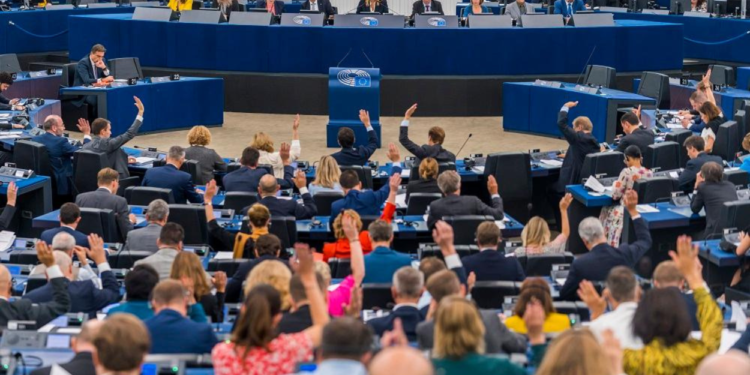Brussels ( Brussels Morning) – EU releases digital guidelines to safeguard European Parliament elections, addressing fake news and misinformation, ensuring transparency and integrity.
In just over two months, the European citizens of the 27 EU nations will go to the polls to revive the composition of the European Parliament. It is already necessary for the Union’s institutions that fake information and disinformation do not degrade the public debate in this last sprint of the election campaign so they do not threaten the integrity of the vote even, and above all, online. That’s why, after the communication drives and memorandum of understanding, the EU Commission yesterday released procedures on recommended measures for online platforms and extensive search engines to mitigate “systemic risks” just ahead of the June 6-9 European election.
The basis for the procedures is the new digital services law (the Digital Services Act), which determines who the services with more than 45 million engaged users in the EU are and what obligations they must follow, including risks connected to electoral processes, fundamental liberties, and freedom of expression. These are two major search engines (VLOSEs, in the jargon) – Bing and Google Search. It also includes 17 significant online platforms (VLOPs): social media (Facebook, Instagram, X, TikTok, Snapchat, LinkedIn, Pinterest) and online shopping platforms (AliExpress, Amazon Store, Apple AppStore, Zalando), Google services (Google Play, Google Maps, and Google Shopping), and Booking.com, Wikipedia, and YouTube.
Although these are only suggestions (those who fail to follow them will have to prove to the Commission that the actions taken are equally effective), the von der Leyen Cabinet has prepared a stress test with stakeholders at the end of April to test the use of collaboration tools and mechanisms.
The guidelines include steps to be taken before, during, and after the election, starting with supporting internal teams “with adequate resources.” Election-specific risk mitigation efforts include official information on election procedures, media literacy initiatives, an adaptation of recommendation systems, and lessening of monetization, not to cite that political advertisement should be “clearly labelled as such.” Of particular attraction is the focus on mitigating risks associated with generative artificial intelligence (also presented the new EU Act on AI, ready to come into force) since it is easy to distribute dangerous content and fake news via deepfakes online. Therefore, the proposal is to explicitly label AI-generated content so that users can be conscious of the type of information they are handling.
The Commission also recommends collaboration with national and European authorities, independent experts, and civil society organizations “to facilitate efficient exchange of data before, during, and after elections,” including on manipulation and interference from abroad. In the possibility of the spread of fake news and misinformation, there should be a reaction mechanism for happenings that could have “a significant effect” on the result of the election or voter turnout. Finally, after European elections, online platforms and big search engines should publish a non-confidential understanding of post-election review documents, “delivering an opportunity for public feedback on the risk mitigation actions taken,” the EU Commission explains.
As the European Parliament elections draw near, the EU Commission has taken proactive steps to safeguard the integrity of the electoral process against the proliferation of fake information and disinformation online. Through the release of recommended measures for online platforms and search engines, underpinned by the new Digital Services Act, the Commission aims to mitigate systemic risks and uphold fundamental liberties.
These guidelines, encompassing pre-, during, and post-election phases, underscore the importance of collaboration among stakeholders, media literacy initiatives, and transparency in addressing electoral threats. By fostering cooperation with authorities and civil society, and implementing measures to counter AI-generated content and foreign interference, the Commission endeavours to ensure a fair and informed democratic process. Ultimately, the commitment to transparency and accountability, exemplified by the call for post-election review documents, reaffirms the EU’s dedication to upholding democratic principles in the digital age.




